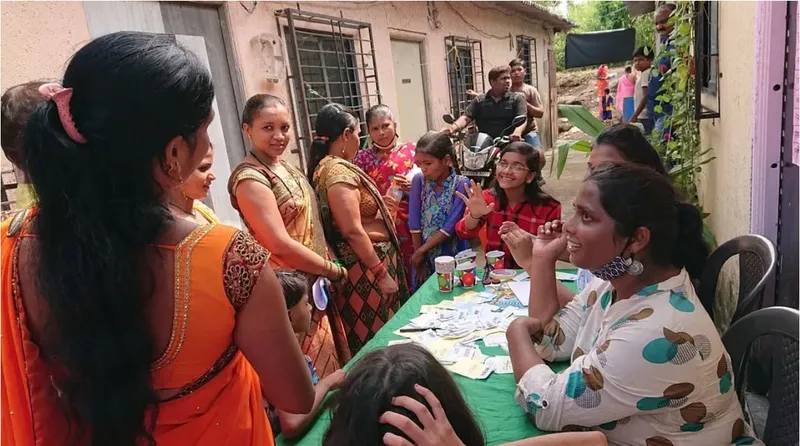Mental health justice: How philanthropy can lead to systemic change
Philanthropic funding for mental health is not only limited but often misdirected, focusing on short-term, visible results and neglecting long-term, complex needs of communities. There are ways this can change
Key Takeaways
Some steps funders can take to create a more equitable system:
- Increase transparency: clearly outline funding criteria, processes, and areas of interest on accessible platforms.
- Simplify applications: complex proposal requirements could be replaced with simple expressions of interest, with funders collaborating with applicants to develop detailed plans later.
- Supporting linguistic diversity: accepting applications in multiple languages to accommodate grassroots organisations.
- Eliminating duplication: If organisations already have proposals submitted elsewhere, funders can accept those rather than demanding entirely new proposals.
Around eight years ago, when Deepa Pawar, an activist from Maharashtra, was working to address structural inequalities affecting marginalised communities, she realised that many existing solutions fell short without an understanding of the mental health or "mental justice" of these communities, as she prefers to call it.
Pawar’s personal experiences as a member of the Ghidasi Gadiya Lohar community—a nomadic tribe found in Rajasthan, Madhya Pradesh and Maharashtra—catalysed her to work closely on issues of gender inequity, caste discrimination and access to basic rights for her community, which as a Denotified Tribe, had suffered from historic criminalisation and trauma.
Using minimal funding, when her organisation Anubhuti Trust brought counsellors and psychiatrists into villages, they saw that following a few sessions, people became wary and actively avoided appointments with these professionals.
With some investigation, Pawar found out why.
Community members who sought help from mental health professionals, often returned feeling lost and more despaired than before, as much of the guidance they received was irrelevant and at times, even harmful to their daily realities.
For instance, one man who hadn’t eaten for days and had watched his children suffer was advised that he “determine to be happy in his mind”.
Another, struggling with schizophrenia, was given medication and told to rest at home—an impossible luxury amid his need to earn a livelihood.
Western, individual-centric mental health does not account for these realities,” says Pawar. “Our hearts and minds are moulded for collective survival and care. Even discussing words like ‘suicide’, in a cold, detached manner can push someone further into the brink,” she adds.
The turning point came when Anubhuti Trust received a grant of Rs 3 lakh from the Mariwala Health Initiative (MHI), enabling the non-profit to develop its work on comprehensive mental health programmes tailored to the unique needs of indigenous communities.
With this, Anubhuti Trust developed culturally rooted interventions, training over 200 young people from Adivasi and nomadic tribes to address mental despair within their homes and communities through their own lived experiences. They integrated advocacy, community healing practices, and systemic accountability into these programmmes, ensuring that care was accessible, relevant, and built capacities within these communities.
“Mental illness in our community is a systemic consequence of criminalisation, social injustice, and marginalisation. It is a reality we have carried in our bodies and minds for generations,” says Pawar.
She adds that this lived understanding contrasts starkly with the often individualistic, clinical approach championed by mainstream mental health frameworks and a majority of philanthropic organisations supporting them.

Anubhuti Trust puts together a ‘Mann Mela, or 'Mental Health Fair’ where games, songs, quizzes and discussions are used to take mental health concepts to college and tribal community youth in a fun, accessible way.
This is why, MHI looks out for organisations that are doing intersectional and grassroots work, as opposed to, say, “expert-led” organisations, says Raj Mariwala, Director, Mariwala Health Initiative. “We have observed that expert-led organisations often take a top-down, biomedical approach to mental health that overlooks psychosocial stressors–like caste and gender-based oppression, domestic violence and financial stress–that are critical to understanding a community’s most pressing needs and quality of life,” they say.
The tokenism in traditional funding
Mental healthcare in India is chronically underfunded, with less than 1% of the country's health budget allocated to it.
Philanthropic contributions tend only to mirror this narrow focus on clinical interventions. This lack of resources is most acutely felt by communities already facing systemic oppression.
Adding to this, mental health is often viewed as intangible and secondary compared to issues like education or sanitation. “This perception leads to a severe funding shortfall, particularly for community-driven initiatives,” says Mariwala.
Paras Sharma, Co-Founder of a Bengaluru-based pay-as-you-want mental health service called The Alternative Story, was looking for philanthropic grants for community-based interventions around 2014-2015, when he found that a majority of funders were reluctant to fund what he calls “programmatic causes”. While he found a lot of enthusiasm around training, scaling and publicity, programmes that needed funds to sustain and run for long term were deprioritised.
“Also, a lot of corporate ideas were copy-pasted into non-profit scenarios,” he adds.
Grassroots and low-funded non-profits working on the intersections say that corporate funders’ need to see metric-driven results and impact indicators often does not align with the nuanced and multifaceted nature of mental health outcomes they strive for.
Intersectional mental health work deals with systemic factors such as gender, class, and caste. These layers create a complex web of challenges that cannot be untangled or resolved quickly.
Outcomes in these scenarios may manifest over time, as reduced stigma, increased help-seeking behaviours, or improved coping mechanisms, but these are difficult to measure in the short term.
Big impact numbers are often only found in randomised controlled trials done for large-scale research that may not amount to much, as programmes based on such research may not even take off, owing to lack of funds.
“We see a lot of funding going into these trials, in addition to apps and training, as opposed to programmes,” says Sharma.
Funding that accounts for ground realities
Organisations like MHI, Forbes Marshall, Rohini Nilekani Foundation and Tata Trusts have been at the forefront of supporting some of the country’s most groundbreaking, culturally-rooted mental health work.
“When we first started funding, we were clear to support folks who were established, had done good work in these areas and were struggling for funds,” says Mariwala.
Philanthropy in India often relies on entrenched networks of privilege, of “knowing someone”, for instance, and these connections are frequently mediated through caste-based networks or geographic proximity to metro cities, where most philanthropies are based.
This leads to the systemic exclusion of organisations operating in remote or less industrially prominent regions.
Language, too, becomes a hurdle. Many funding organisations require proposals in English or other dominant languages, leaving grassroots groups that operate in regional dialects at a disadvantage. Moreover, the process of crafting detailed proposals—replete with budgets and justifications—often demands resources and expertise that smaller organisations lack.
Rethinking philanthropy practices
MHI has implemented practical solutions, such as an open call for funding applications that accepts submissions in any format or language. “We ask for a short note—literally an expression of interest. What are you interested in doing? Why have you come to us?” Mariwala explains. This approach reduces the burden on applicants and ensures that organisations with limited resources can still engage in the funding process.
By dismantling networks of privilege, simplifying processes, and being transparent about funding practices, philanthropic organisations can shift from being gatekeepers to enablers of change, says Mariwala.
Notably, Forbes Marshall Foundation's approach is horizontal. Instead of focusing solely on organisations dedicated to mental health, the foundation integrates mental health and well-being into the broader spectrum of its initiatives.
“We support small to medium-sized organisations working with the most vulnerable communities,” says Rati Forbes. Director, Forbes Marshall Group. “This includes Dalits, tribal communities, trafficked women, and other marginalised groups. In every grant, the foundation enquires about the efforts taken to improve the mental well-being of the communities served.”
She also emphasises the need for patient capital to address systemic issues that don’t yield quick, quantifiable results. One such overlooked area is the mental health of social workers themselves, says Rati, underscoring the emotional toll borne by those who work closely with survivors of trafficking or, domestic violence.
“We are so focused on the NGO serving the beneficiary that we forget the emotional challenges faced by those working in this space every day,” says Rati. To address this, the foundation supports initiatives aimed at equipping frontline and other social workers with the tools to manage their own well-being.
Programmes include online courses spanning months, and offering techniques like meditation and deeper individual engagement with mental health professionals.
As India grapples with the complexities of addressing mental health, rethinking philanthropic practices becomes crucial. When they consciously move away from entrenched networks of privilege and gestural funding processes, organisations pave the way for inclusive, grassroots-driven mental health solutions.
“In our community, superstitions surrounding mental illnesses are rife,” says Pawar. “But if you pause, and look back at our access to care and education, you will see that we had no hospitals nearby to get help from, no schools to educate our children and teach them better. Superstitions were the way we survived our collective trauma,” she says.
“There was a time when superstitions also surrounded polio and dengue, but now, there aren't. Why? Because awareness was built, help came by and money was allocated. When our communities get access to resources, leadership positions and find agency, they get mental justice,” she adds.
Edited by Affirunisa Kankudti






